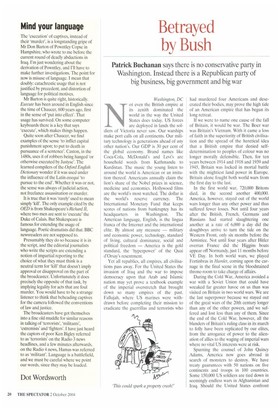Mind your language
The 'execution' of captives, instead of their 'murder', is a longstanding gripe of Mr Don Barton of Powntley Copse in Hampshire, who wrote to me before the current round of deadly abductions in Iraq. I'm just wondering about the derivation of Powntley, and I'll have to make further investigations. The point for now is misuse of language. I mean that doubly: catachrestic usage that is not justified by precedent, and distortion of language for political motives.
Mr Barton is quite right, historically. Execute has been around in English since the time of Chaucer, 600 years ago, first in the sense of 'put into effect'. That usage has survived. On some computer keyboards there is a key that says 'execute', which makes things happen.
Quite soon after Chaucer, we find examples of the sense 'to inflict capital punishment upon; to put to death in pursuance of a sentence'. Caxton, in the 1480s, uses it of robbers being hanged 'or otherwise executed by Justyse'. The learned compilers of the Oxford English Dictionary wonder if it was used under the influence of the Latin exsequi 'to pursue to the end'. Whether it was or not, the sense was always of judicial action, not freelance assassination or murder.
It is true that it was 'rarely' used to mean simply 'IdIF. The only example cited by the OED is from Shakespeare's Richard II, where two men are sent to 'execute' the Duke of Calais. But Shakespeare is famous for extending the usage of language. Poetic dramatists did that. BBC newsreaders are not supposed to.
Presumably they do so because it is in the script, and the editorial journalists who write the scripts are extending a notion of impartial reporting to the choice of what they must think is a neutral term for 'kill' that doesn't imply approval or disapproval on the part of the broadcaster. Unfortunately it does precisely the opposite of that task, by implying legality for acts that are foul murder. You would have to be a strange listener to think that beheading captives for the camera followed the conventions of law and justice.
The broadcasters have got themselves into a fine old muddle for similar reasons in talking of 'terrorists', 'militants', 'extremists' and 'fighters'. I have just heard the captors of poor Ken Bigley referred to as 'terrorists' on the Radio 3 news headlines, and a few minutes afterwards, on the Radio 4 news, Harnas was referred to as 'militant'. Language is a battlefield, and we must be careful where we point our words, since they may be loaded.
Dot Wordsworth


















































































 Previous page
Previous page